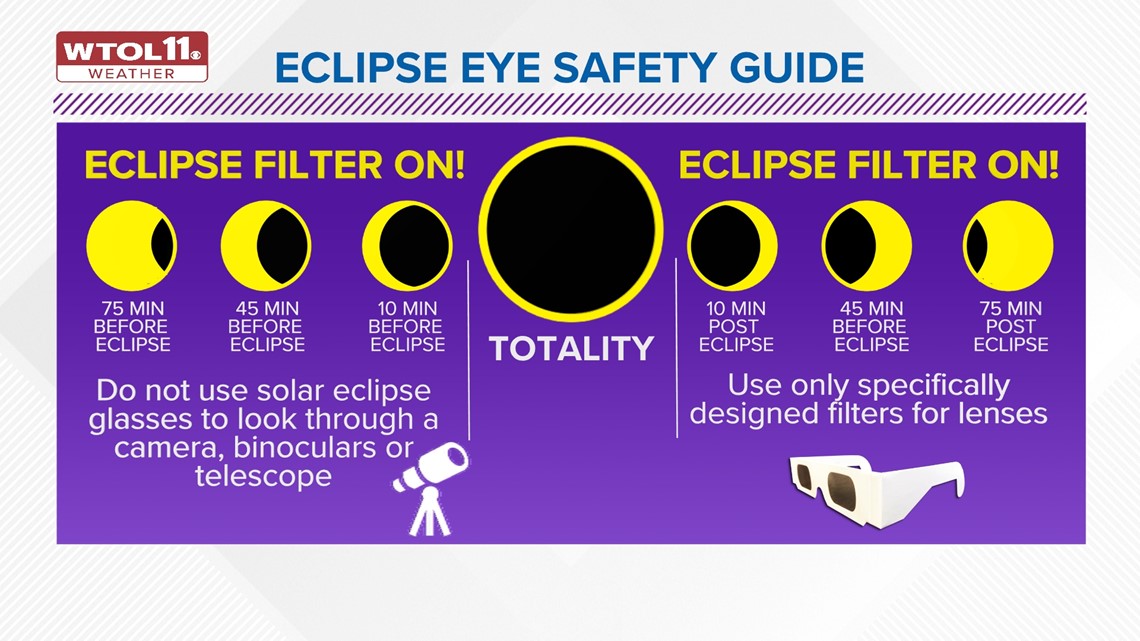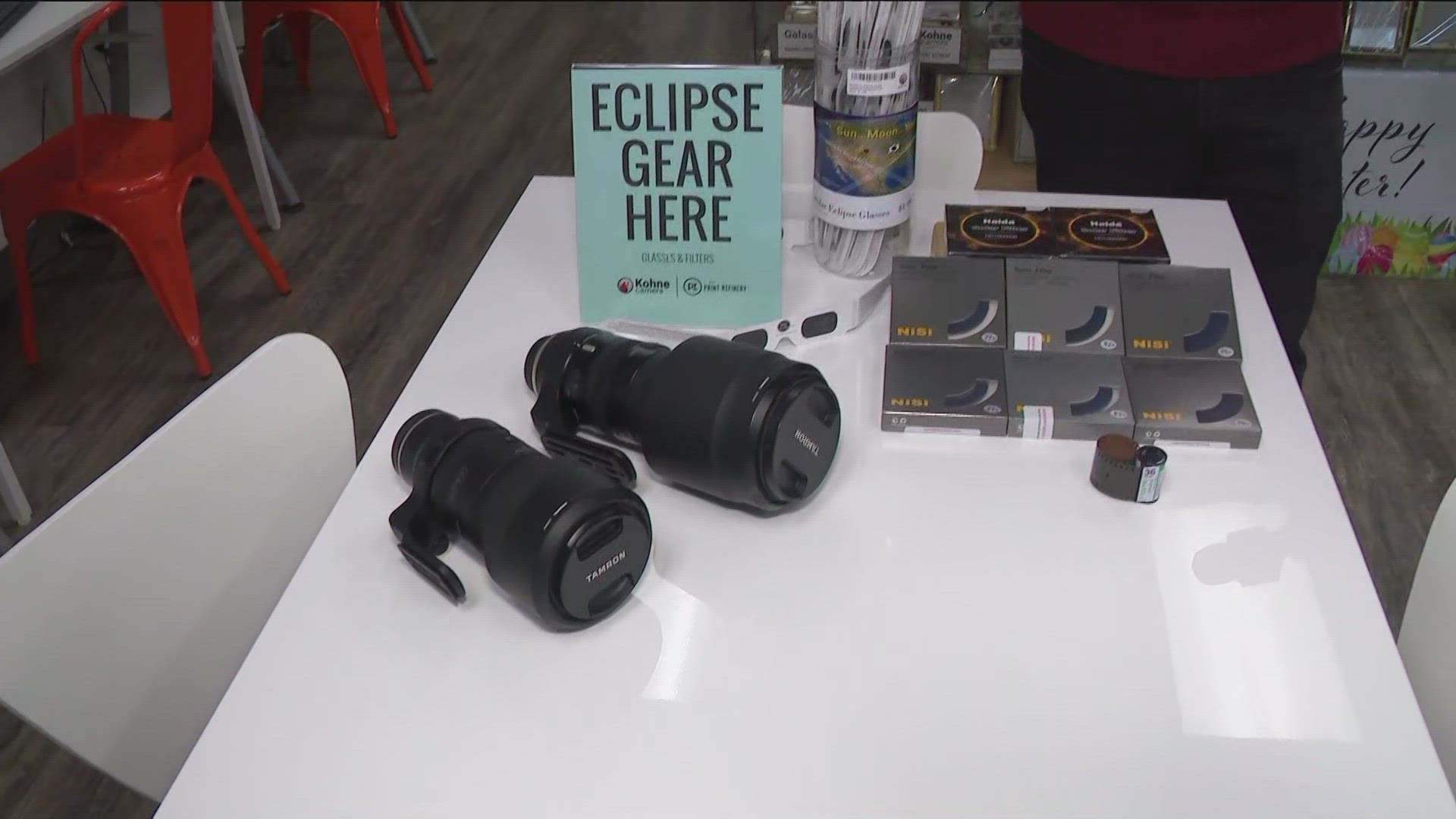TOLEDO, Ohio — Millions will be watching the total solar eclipse on Monday, April 8. Not only will you need to protect your eyes, but your cameras also will need protection if you plan to take photos of the eclipse.
A helpful tip to remember is to not look through a camera, telescope or binoculars, even while wearing your eclipse glasses because the solar rays can melt the filter in the glasses and harm your eyes. It will not protect your eyes.
That is why it is important to have a special filter on your camera as well. Even if just a small portion of the sun is exposed, it can still be dangerous to your eyes and camera without the filter.
Not only will a solar filter protect your camera’s imaging sensor, but it will also help with getting the correct exposure during the eclipse.
When looking for camera filters, you want to look for “Full-Aperture” and “Off-Axis” filters. When applying the filters, make sure to follow the directions and place them directly on the lens and not in the filter slot.
The only time the solar filter should be removed is during complete darkness, due to the sun’s corona being not as bright during that time. This is also the only time to view the eclipse without any eye protection.
"In conjuction with using the filter, you want to also have the glasses for when you're composing and changing your camera settings," Preston Dibling of Kohne Camera in Perrysburg said. "There are apps out there that help you track the amount of time of totality and the other events of the eclipse so you can focus on setting up your camera and get the shot."
DO'S:
1. DO seek expert advice before using a solar filter with a camera, telescope or binoculars.
2. DO use a filter on your camera to take pictures.
3. DO wear certified solar viewing glasses when viewing the eclipse.
DON'TS:
1. DO NOT use eclipse glasses or handheld viewers with cameras, binoculars, or telescopes.
2. DO NOT point a camera at the sun unless the lens is fitted with a certified solar filter.
3. DO NOT look through a camera when it is pointed at the sun.
Stay with WTOL 11 for all your eclipse updates.



